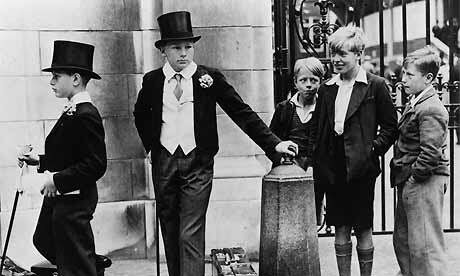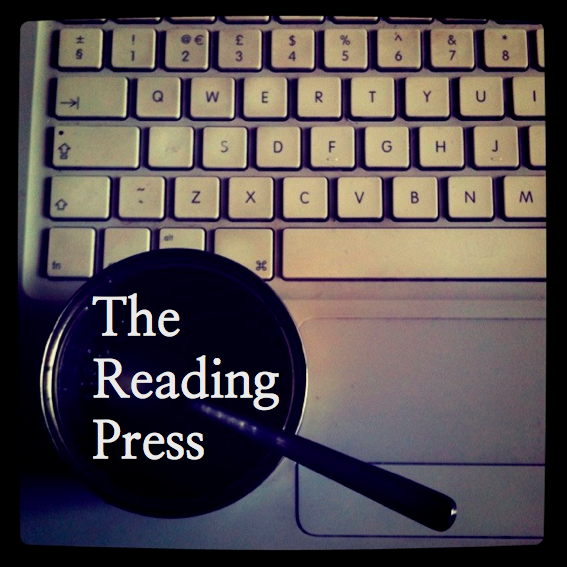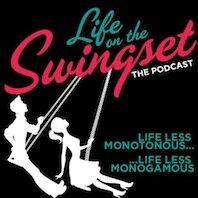 It has been said, in various different ways, by several clever people, that where men are intellectual, women move in “curves of emotion”. Of course, there are exceptions to this statement, and there are those who purposefully try to bring a little of the opposite gender to their lives, but in general I have found it to be true that women feel more, where men are more cerebral.
It has been said, in various different ways, by several clever people, that where men are intellectual, women move in “curves of emotion”. Of course, there are exceptions to this statement, and there are those who purposefully try to bring a little of the opposite gender to their lives, but in general I have found it to be true that women feel more, where men are more cerebral.
This in and of itself is not something I see as a problem. Mostly it just seems to be the way we’re made.
But there is another saying, which seems to be far too true (for my comfort). Oscar Wilde said “All I wish to point out is that life imitates art far more than art imitates life.” And he was right. Our trends, our fashions, our lifestyles, our choices are often based on those we hear about, read about and see. And unfortunately, our view of women has become one of neurosis, clinginess and obsession.
I recently started watching Sex and the City again; I had forgotten just how much of that show is based around women worrying about, obsessing over and analysing their relationships with men. And that aspect of this show is not unique. It seems that a large number of TV shows/books/films aimed at women give a fair amount of their time to this kind of thing; Bridget Jones, Eat Pray Love, Sleepless in Seattle, even Austen, – not to mention the literature aimed at adolescent girls – all seem to be encouraging these obsessive tendencies. And if we are modeling our lives on those we read/see/hear, then I have to ask: isn’t our society encouraging bad behaviour?
Furthermore, all of the agonising those fictional women (and, by association, us real women) do, seems to be based on this constant struggle between how we believe men should act, and how they behave in reality. Which begs the question, who sat down and decided that if a man doesn’t call you for three days, if he wants to have his own life, if he flirts with someone else, he is, automatically, an asshole? And what – to me – seems particularly unfair about this state of affairs is that men are, for the most part, unaware of the rules that have been made for them because (shockingly) they don’t watch Sex and the City.
At this point – as I always seem to do, – I have to insert a few disclaimers: of course, for many women, this isn’t an issue. Many – if not most – of the ladies in the room seem to have made up their own minds about how they should be treated and how they should treat others, and so the whole question of “should” versus “does” is null and void. They’ve taken the view that men and women are just people and it’s up to us to decide what we’re looking for. On the other side of that, I’m sure there are things men do that are just as bizarre as this situation seems to me; but I’m a woman, and I’m commenting on this side. For now. And as for the fiction we are consuming? Well, there is evidence to show that people who read novels are better equipped to live in this World because they have more understanding of how other people experience life. We thrive on our own experiences, so consuming other people’s – whether they be real or not, and all good fiction has some truth in it, – is, most likely, going to enrich our experiences.
However, despite the collective intelligence of women, men and books, I have still come across enough hand-wringing girls to prompt me to write this article. Try as they might, it is evident, daily, that many women expect more from men than they are ever likely to get – and in some cases more than any man could give. And the prevalence of this “he hurt me, ergo he is an asshole” attitude is starting to grate. In fact, in some cases it has reached ridiculous heights; I saw a facebook status a few days ago reading “[insert male name here] just dumped [insert female name here]; what an asshole”. I decided to give this girl the benefit of the doubt, and assumed that he must have done something more than just break up with her to warrant the label “asshole”. But when I asked, it became clear to me that he hadn’t. He just dumped her because, presumably, it wasn’t working for him. Of course, she’s allowed to be angry, fair play; and then I read the collective hatred coming from her friends, who all agreed that he was/is an asshole. I know in this case it’s probably more a show of solidarity than genuine feeling, but – again – is this not just an undesirable trend that is going to lead to yet more bad behaviour?
If I had read more of the books that were aimed at me as a teenager – and I have done since – rather than being distracted by Hanif Kureishi, E. A. Poe and Ian McEwan, I’m almost certain I’d have wracked up a fair amount of presumptions about how guys were ‘supposed’ to treat me. It seems that at some (indefinable?) point in time, romance gave way to obsession. When did our heroines stop being swept off their feet and start analysing their relationships to death? I’m sure, at it’s core, it was a push for realism that led us to this point – because people are rarely swept off their feet in real life – but it’s gone beyond that.
This actually ties in very well with another belief I have been nurturing for a while now. It’s not original and I come across it quite often on other blogs – particularly those based around unconventional relationships – and it is the idea that we need more relationship models. Human beings seem to be programmed to compare and contrast – or educated to, since “compare and contrast” was the title of my most important piece of A-level coursework – and so we compare relationships. With disastrous effects! Comparing your situation to other people’s has always proved to be a bad idea. You’re either not having enough sex, or you’re not talking enough, or the age gap is too large, or – my favourite one – you both deserve better.
And worst of all? Comparing relationships ultimately becomes comparing men. But I’ve never met a woman who didn’t want to be appreciated for her uniqueness. So why can’t we do the same for men? I’m a firm believer in tough love, and have sent many crying girl friends off to read the brutal words of Greg Behrendt (author of He’s Just Not That Into You). However, sometimes people are just busy. Three days of silence from a high powered businessman is not a lot, and it’s certainly not cause for talk of assholery.
A good friend of mine spent the first six months of this year in Canada, where she met, dated and fell in love with an Earth-loving, soup-kitchen-volunteering, soft-hearted guy. Sure, he wasn’t perfect; he was scatty and difficult to get hold of, but for the most part, he tried to keep a balance between work and their relationship, and openly asked her to live at his house at the weekends. Being the age they are, money was an issue and he couldn’t afford broadband, and sometimes the phone got cut off, and she knew this well. Yet, every time she couldn’t get in touch with him – and we’re talking a matter of hours, not days – she would start questioning his motives, wondering if he really cared about her at all, and branding him an asshole for not making her his priority. I comforted her as much as I could until I decided I’d had enough.
This is not a unique example. I could give you a list of female friends who have given me almost identical complaints about their respective male counterparts. Likewise I could present each of these girls with a list of movie-moments where a woman is sitting beside her phone or bitching about the guy she eventually ends up with.
But back to those relationship models. I find it disappointing that in a World of polyamory, fuck buddies, long distance relationships, divorce, childless-by-choice marriages, kink, (I could go on), the majority still cleave to this one idea of how a relationship should look: daily contact, dates every three to four days, monogamy, sex (that is enjoyed modestly and not shouted about), trivial gifts (to, presumably, show feelings that we can’t trust without materialism), a carefully calculated schedule – date, have sex, meet each other’s parents, say “I love you”, move in together – etc. Why are we still measuring our pleasure by what’s expected of us, and not by what we find pleasurable? And these expectations are crushing! because suddenly, if something isn’t where it’s “supposed to be”, all those girls who were raised on chick flicks and modern romance fiction, think there’s something terribly wrong with their relationship.
But, of course, we’re not stupid. Pointing this out to my female friends has only ever elicited the answer “Yeah, I know.” And they do! They know this over-obsessing is unnecessary, and yet it continues – prompted, I am certain, by the examples that surround us – because… well, why? The only conclusion I can ever really draw is that far too many women want or are willing to put themselves in harm’s way. I call it ‘emotional masochism’. And I do not understand it.
I will do almost anything to avoid romantic, emotional pain (which is, admittedly, another problem for another article). I have rules for myself, to avoid exactly this kind of upset, so to me it is completely incomprehensible when women (and men actually) put themselves in situations where they are likely to get hurt. If you know you are an unfairly jealous person, why would you ask your partner if [insert the main antagonist of your jealousy here] had been at that party? If you know you need daily contact, why would you be in a long distance relationship? If you asked to just be friends, why would you get pissed off when he/she goes out with someone else? This kind of behaviour is something I truly cannot fathom.
At the end of the day, I really don’t have any of the answers, but I boil it down to one simple truth; if you are unhappy in your relationship more often than you are happy, then you probably shouldn’t be in that relationship. But, for fuck’s sake, give yourself a chance and don’t make yourself miserable. And can we please stop comparing relationships and just find the cut that fits us?

















You are a rare woman indeed. You have no idea how much I needed to hear this right now, my dear.
Always happy to help. Thank you for reading!
HEAR HEAR! Beautifully written, perfect for the day. Love love love.
*grins* And here was me thinking YOU wrote the perfect-for-the-day article. Thanks hun!
Insightful, thoughtful and scarily accurate. I’m married to a monosyllabic, non-materialistic (amongst other things no trinket-giving) man who travels extensively for work. Love is about compromise and understanding. It ain’t what they tell you on Sex in the City (and other series’), that will only get you ulcers and debt lol not happiness. Are we as a sex so inherently insecure? *SIGH*
Precisely! and I am ecstatic to have figured it out before the ulcers set in. It’s ridiculous. Still have to sort out the debt; hmm… but at least my money’s going to the Royal Opera House and not shoes… still. Damn women.
you’re reply made me laugh out loud. It IS riduculous. *grins* Hang onto you’re hats (and hide your expensive shoes) the resurgence of intelligencia amongst educated women COULD change a thing or two in this world. About as likely as Marxism but it gives me hope …
This is what I needed to read, and I’m very glad that you decided to write about it. I’m still waiting for my copy of He’s Just Not That Into You to arrive at the bookstore, and I am very keen on reading it.
It’s interesting that you point out Sex and The City as a source for these insecurities in women. They recently started repeating SATC over here, and, whilst watching, I came to the conclusion that some of the “issues” in the show are terribly dated and irrelevant. Yet women still take this show as gospel! I realise I might not be the only one coming to this conclusion, but I feel quite strongly about it, seeing as I used to be one of these women.
Jill(y) xx
Indeed indeed. I still love that show, but Carrie annoys the hell out of me a lot. I seriously hope no one’s taking her as gospel! I think it is becoming less relevant, definitely. particularly the early series. But as I say… I still like it! Can’t help enjoying it.
Here here! I definitely feel myself falling into those “timelines” even with partners who are very clearly just in it for play/sex/fun. I want to de-program myself from it, and I wonder how exactly the best way to do that is. I suppose acknowledging it is a good step? I’m also kind of hoping that crazy, I-just-met-you-lets-fuck-and-then-be-long-distance friends con-sex stuff is going to help.
But I’m definitely no fan of waiting for the phone to ring and basing my entire life around what my partner is doing or not doing with or without me. I think the people that do engage in a lot of that mostly need more friends to hang out with- you can’t expect your man to spend every waking second with you!
I think you’re so right here. I’m currently trying to write a (somewhat playful) piece about how NOT to fall in love, and specifically in situations where you want some intimacy with someone, but aren’t in a good place to be “in love”. Of course, all I can offer – really – are my own personal suggestions and observations, but maybe it will add to the conversation here. If you have any ideas yourself feel free to get in touch with me. The more voices, the closer we are to finding our own personal solutions, I reckon.
Pingback: Sex ed for adults, munches, and emotional masochism « yellowbelliedmarmot
Pingback: e[lust] – 30 « Neamhspleachas